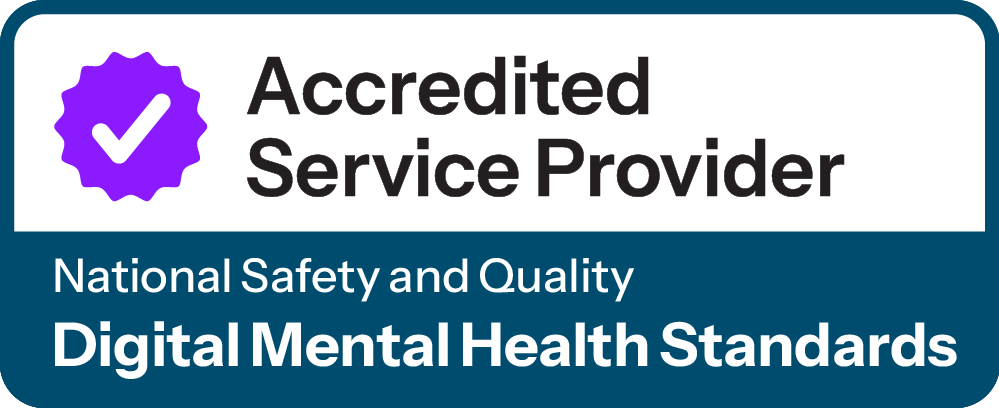Leading digital youth mental health service, ReachOut Australia, has launched its latest report – The power of peer work: An evaluation of ReachOut’s PeerChat service.
The report explores the positive impact ReachOut PeerChat is having on young people in Australia and is the first evaluation of the service since its launch in 2022.
PeerChat is a digital peer-led chat service designed to support young people facing mental health concerns and everyday challenges.
Young people aged 16–25 can connect anonymously with a trained peer worker via a text-based platform.
The service is designed to be accessible and anonymous, and to promote a judgement-free space where no issue is ‘too big or too small’.
The evaluation found that the service is having a positive impact, with 74% of users reporting feeling better after their chat.
More than 4 in 5 PeerChat users (86%) experienced at least one positive outcome during their session. These positive outcomes include reducing distress and helping young people feel less alone in their experiences.
Gary Groves, CEO at ReachOut, was pleased, but not surprised, to see the positive impact PeerChat is having on the lives of young people.
“There is a significant amount of evidence showing that peer support can be a powerful tool in supporting people with their mental health journey and promoting recovery.
“Sometimes young people just need someone to talk to to stop the downward spiral of poor mental health they’re experiencing. They need to feel heard, seen and like they’re not alone.”
The service is increasing young people’s confidence talking about difficult issues, with nearly 3 in 4 PeerChat users (70%) able to open up about their worries, some sharing their struggles for the first time. “Peer workers encourage young people to open up by sharing their own lived experience. This helps build trust and rapport and fosters connection. Young people find reassurance in chatting with a peer worker who has faced similar challenges.”
PeerChat is also encouraging young people to take action.
More than half of users reported learning (53%) or co-developing (55%) self-help strategies, with many saying they intended to try something new or to make a change.
53% had tried other sources of mental health support following their session.
“Peer support can be the first step many young people take in their mental health journey. It’s a low-barrier option for young people who might not be ready to seek clinical support just yet.”
The evaluation highlights the important and unique role that digital peer work plays in supporting young people’s mental health and wellbeing, particularly by increasing accessibility, reducing stigma, and fostering feelings of being heard and understood.
The insights gained from the evaluation will inform future service improvements.
“At ReachOut, we’re committed to continuously improving our services so they best meet the needs of young people in Australia. From the evaluation, we have a set of recommendations that we’re planning to implement to improve the service.”
Key findings:
- 86 per cent of PeerChat users reported experiencing at least one positive outcome during their session.
- Nearly three quarters (70%) of users were able to open up about their worries, as a result of the accessible, anonymous and supportive environment created through the chat.
- More than half of users reported learning (53%) or co-developing (55%) self-help strategies, with many saying they intended to try something new or to make a change.
- Three quarters (74%) of users reported feeling a little or a lot better after their chat.
- More than half of users (53%) had tried other sources of mental health support following their session.
- More than half of users (57%) said that, since using PeerChat, they had tried the tips a peer worker had shared with them.
- Nearly half of users (47%) reported feeling better able to talk to others about their worries.
- The peer workers’ lived experience was integral to supporting positive outcomes.
- ReachOut’s organisational support for its lived experience workforce was also critical to the success of the service.
What are our users saying?
- ‘I was feeling so lost and afraid, and this helped so much. No judgements. I feel so relieved right now.’ (Post-session survey)
- ‘I was unsure of why I was feeling the way I was feeling until after the chat ... Then it became a bit clearer to me. I kind of came to that conclusion myself, but I feel they [the peer worker] supported me in keeping me on track. [After the chat] I was able to talk about what we had talked about to other people, since I now had a clearer idea of what I wanted.’ (User interview)
- ‘I've tried therapy in the past and it was hard for me to open up properly. Because it's so expensive, it would be a waste if I spent that much money and didn't even say the things I wanted to. PeerChat was great when I needed someone just to talk to and to feel understood and heard.’ (User interview)
- ‘The peer worker was really great at helping me feel like I wasn’t alone in what I am feeling and validated the way I am reacting to the situation.’ (Post-session survey)
Check out the full report here
Watch the full webinar recording here






